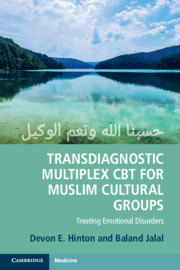This study explores the mental health difficulties associated with severe trauma as experienced by refugees and asylum seekers, and issues related to psychological treatments. An evaluation was conducted of a culturally adapted cognitive therapy group programme for Tamil refugees and asylum seekers in the Wandsworth IAPT (Improving Access to Psychological Therapies) service. Data were examined from 16 Tamil participants who accessed the service between 2014 and 2015 and subsequently engaged in the group programme between 2015 and 2016. The IAPT minimum data set (PHQ9, GAD-7, Phobia scale and WSAS) and IES-R (Impact of Events Scale Revised) were used as quantitative measures. Qualitative feedback about the programme was also obtained. A positive change in the wellbeing of participants was indicated by a reduction in the severity of negative symptoms for all metrics and qualitative feedback provided additional evidence that participants had benefited from the programme. The implications of these findings are discussed.
Key learning aims(1) To examine the difficulties experienced by refugees and asylum seekers and to provide a shared understanding of these themes for CBT practitioners.
(2) To assist CBT practitioners to develop their confidence in using culturally adapted CBT treatment programmes for refugees and asylum seekers.
(3) To inform service providers how culturally adapted CBT models can be used in developing specialist services for refugees and asylum seekers.


